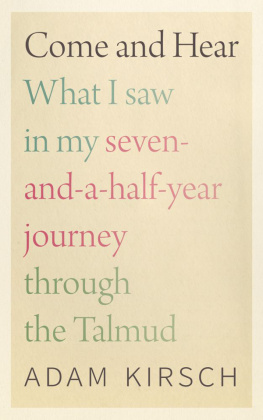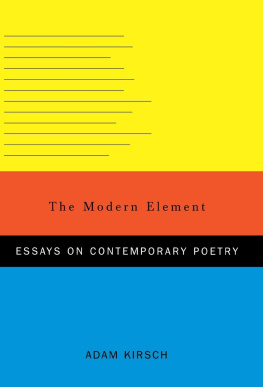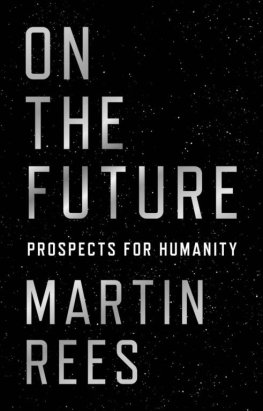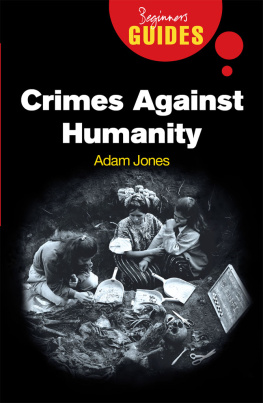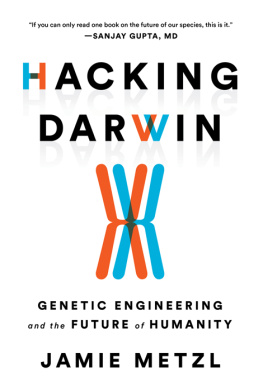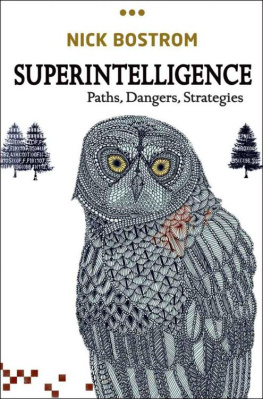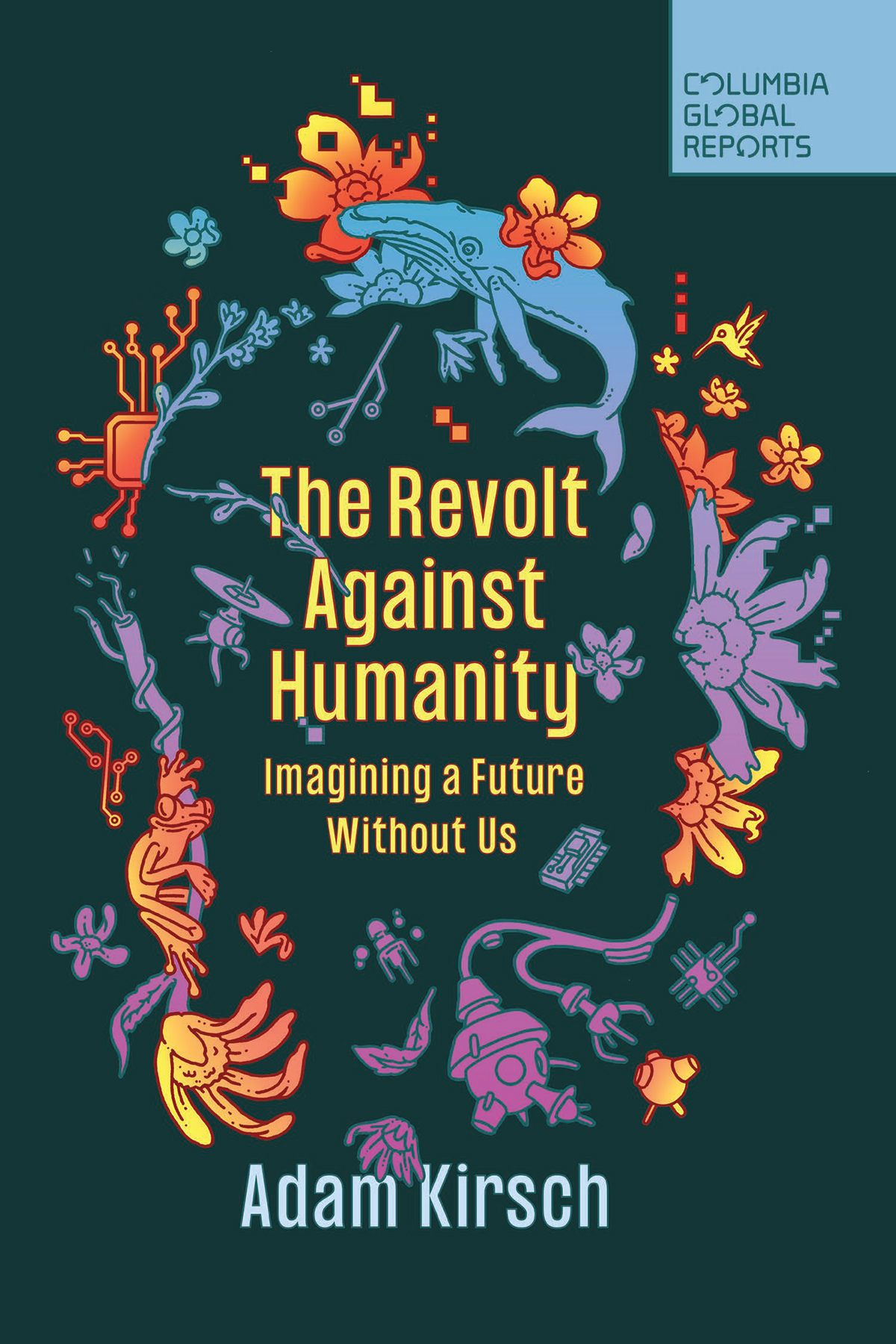Contents
Guide
Pagebreaks of the Print Version
PRAISE FOR The Revolt Against Humanity
The Revolt Against Humanity is a profound, daring, and intellectually thrilling examination of the role of human beings on Earth: would the world be better off without us? Beautifully written, the book will spark your thoughts, challenge your preconceptions, and leave you asking yourself wonderfully unanswerable questions.
ELLEN ULLMAN,author of Close to the Machine and Life in Code
Were told that ideas can have momentous consequences. In that case, we owe it to ourselves to pay close attention to the chilling ideas Adam Kirsch highlights in this profound and disturbing book. On one side, some environmental activists welcome the idea that humanity may be on the brink of extinction; on the other, a group of Silicon Valley entrepreneurs dreams of using their fortunes and technical knowhow to empower us to transcend our humanity altogether. Kirsch provides an illuminating guide to both trends. Hes also an uncommonly insightful critic, drawing on the wisdom of poets, novelists, and philosophers to make sense of our unsettling attraction to the idea of a world without us.
DAMON LINKER,author of The Theocons and The Religious Test
The RevoltAgainst Humanity
Imagining a FutureWithout Us
Adam Kirsch
COLUMBIA GLOBAL REPORTS NEW YORK
The Revolt Against Humanity
Imagining a Future Without Us
Copyright 2023 by Adam Kirsch
All rights reserved
Published by Columbia Global Reports
91 Claremont Avenue, Suite 515
New York, NY 10027
globalreports.columbia.edu
facebook.com/columbiaglobalreports
@columbiaGR
Library of Congress Cataloging-in-Publication Data
Names: Kirsch, Adam, 1976- author.
Title: The revolt against humanity : imagining a future without us / Adam Kirsch.
Description: New York, NY : Columbia Global Reports, [2023] | Includes bibliographical references. |
Identifiers: LCCN 2022020040 (print) | LCCN 2022020041 (ebook) | ISBN 9781735913766 (paperback) | ISBN 9781735913773 (ebook)
Subjects: LCSH: Humanity. | Human beings. | Future, The.
Classification: LCC BJ1533.H9 K57 2023 (print) | LCC BJ1533.H9 (ebook) | DDC 179.7--dc23/eng/20220610
LC record available at https://lccn.loc.gov/2022020040
LC ebook record available at https://lccn.loc.gov/2022020041
Book design by Strick&Williams
Map design by Jeffrey L. Ward
Author photograph by Miranda Sita
Printed in the United States of America
CONTENTS
Introduction
Man is an invention of recent date. And one perhaps nearing its end. With this declaration in The Order of Things (1966), French philosopher Michel Foucault heralded a new way of thinking that would transform the humanities and social sciences. Foucaults central idea was that the ways we understand ourselves as human beings arent timeless or natural, no matter how much we take them for granted. Rather, the modern concept of man was invented in the eighteenth century, with the emergence of new ways of thinking about biology, society, and language, and eventually it will be replaced in turn.
As Foucault writes in the books famous last sentence, one day man would be erased, like a face drawn in the sand at the edge of the sea. Its an eerie image, but he claimed to find it a source of profound relief, since it implies that human ideas and institutions arent fixed once and for all. They can be endlessly reconfigured, maybe even for the better. This was the liberating promise of postmodernism: the face in the sand is swept away, but someone will always come along to draw a new picture in a different style.
But the image of humanity can only be redrawn so long as there are human beings to do it. Even the most radical twentieth-century thinkers stop short at the prospect of the actual extinction of the species Homo sapiens, which would mean the end of all our projects, values, and meanings. Humanity may be destined to disappear someday, but almost everyone would agree that the day should be postponed as long as possible, just as individuals generally try to delay the inevitable end of their own lives.
In recent years, however, a disparate group of thinkers has begun to challenge this core assumption. From Silicon Valley boardrooms to rural communes to academic philosophy departments, a seemingly inconceivable idea is being seriously discussed: that the end of humanitys reign on Earth is imminent, and that we should welcome it. The revolt against humanity is still new enough to appear outlandish, but it has already spread beyond the fringes of the intellectual world, and in the coming years and decades it has the potential to transform politics and society in profound ways.
This book aims to provide an introduction to the key ideas and thinkers shaping the new worldview, to understand its historical background and the sources of its appeal, and to think about its possible implications for the future. What I am calling the revolt against humanity finds support among very different kinds of people: engineers and philosophers, political activists and would-be hermits, novelists and paleontologists. Not only do they not see themselves as a single movement, but in many cases they would want nothing to do with one another. Indeed, I will try to show that the turn against human primacy is being driven by two ways of thinking that appear to be opposites.
The first is Anthropocene antihumanism, inspired by revulsion at humanitys destruction of the natural environment. The idea that we are out of tune with nature isnt new; it has been a staple of social critique since the Industrial Revolution. Half a century ago, Rachel Carsons Silent Spring, an expos of the dangers of DDT, helped inspire modern environmentalism with its warning about following the impetuous and heedless pace of man rather than the deliberate pace of nature. But environmentalism is a meliorist movement, aimed at ensuring the long-term well-being of humanity, along with other forms of life. Carson didnt challenge the right of humans to use pesticides; she simply argued that the methods employed must be such that they do not destroy us along with the insects.
In the twenty-first century, Anthropocene antihumanism offers a much more radical response to a much deeper ecological crisis. It says that our self-destruction is now inevitable, and whats more significant, that we should welcome it as a sentence we have justly passed on ourselves. Some antihumanist thinkers look forward to the actual extinction of our species, while others predict that even if some people survive the coming environmental apocalypse, civilization as a whole is doomed. Like all truly radical movements, Anthropocene antihumanism begins not with a political program but with a philosophical idea. It is a rejection of humanitys traditional role as Earths protagonist, the most important being in creation.
Transhumanism, by contrast, glorifies some of the very things that antihumanism decriesscientific and technological progress, the supremacy of reason. But it believes that the only way forward for humanity is to create new forms of intelligent life that will no longer be Homo sapiens. Some transhumanists believe that genetic engineering and nanotechnology will allow us to alter our brains and bodies so profoundly that we will escape human limitations like mortality and embodiment. Others look forward, with hope or trepidation, to the invention of artificial intelligences infinitely superior to our own. These beings will demote humanity to the rank we assign to animalsunless they decide that their goals are better served by wiping us out completely.



